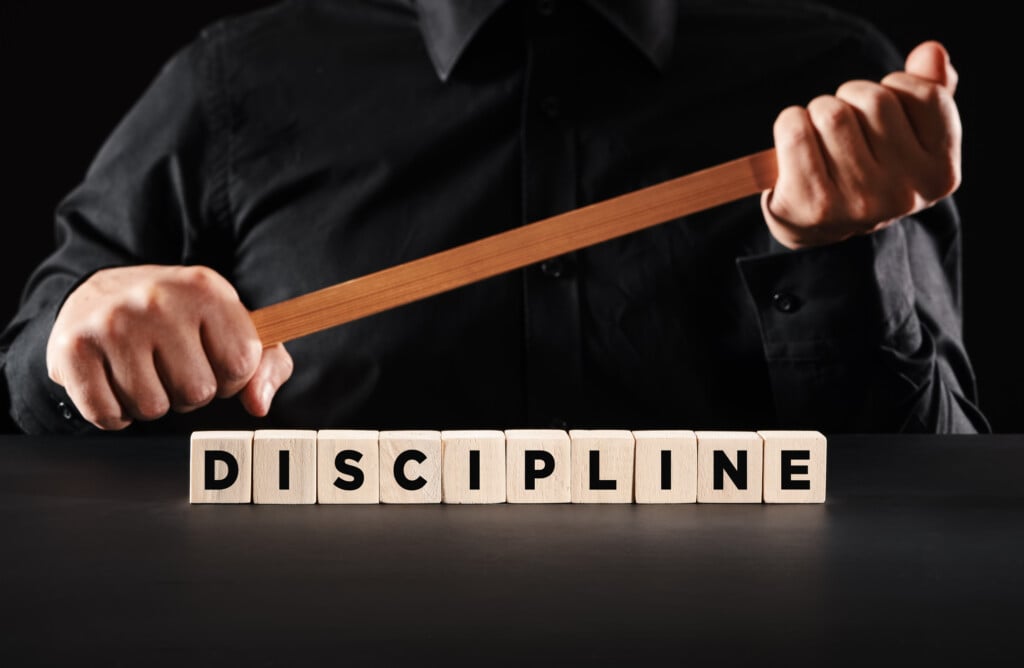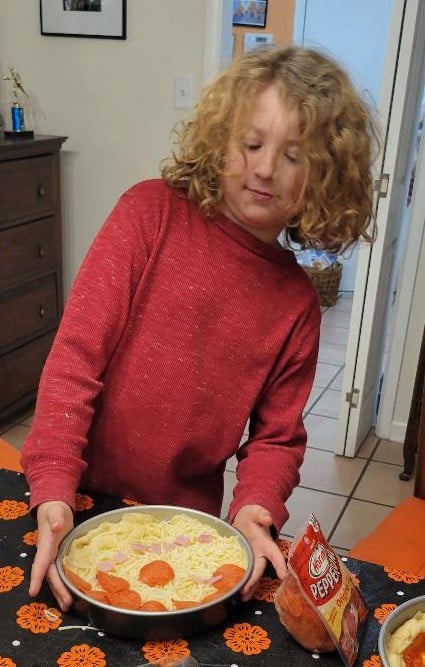Why Are Oklahoma Schools Still Hitting Children with Intellectual Disabilities?

When I heard about the proposed House Bill 1028, I was sure it would pass unanimously. House Bill 1028 would prohibit schools from using corporal punishment on students with disabilities. Maybe I’m naïve, but I couldn’t imagine anyone advocating for hitting, spanking, slapping, paddling, or any other form of physical punishment. I assumed there would be no pushback on this bill, so I relaxed in my advocacy role. Then I remembered – this is Oklahoma.
Oklahoma is one of seventeen states still allowing corporal punishment for public school students. Nationwide statistics show that children with disabilities are subjected to a disproportionately high incidence of physical punishment. Although they make up 14% of the student population, they are on the receiving end of 19% of the incidents of corporal punishment. According to some studies, a child with disabilities is fifty percent more likely than a non-disabled child to be a victim of corporal punishment at school.
What is corporal punishment?
Corporal punishment is defined as “any punishment in which physical force is used and intended to cause some degree of pain or discomfort. Paddling is the most common punishment for students with disabilities, but cases of pinching, slapping, forceful grabbing, and throwing children to the floor have also been reported.
The American Academy of Pediatrics strongly favors abolishing all physical punishments in schools. Even without addressing the fact that study after study has shown that physical punishment for all children is ineffective and potentially harmful, we are explicitly talking about students with intellectual disabilities! Think about that for a minute. If we don’t pass this bill, Oklahoma is officially saying it is permissible to hit children with disabilities! That is just plain wrong on so many levels. As a sister to a brother with disabilities, I find it reprehensible, scary, and heartbreaking!
Often, children are punished for behaviors that are part of their disability that are not within their control. I think about my brother, who has obsessive-compulsive disorder and an IQ of 54. Despite being on medication for OCD, he still occasionally exhibits behaviors such as needing to touch a doorframe repeatedly or becoming obsessed with picking up trash. My brother wouldn’t understand if he were physically punished for behaviors he can’t control. He does not have the mental capacity to make a correlation between his behaviors and the consequences. Physical punishment would accomplish nothing. It would be cruel and heinous.
Some results of corporal punishment in students with disabilties
Children with disabilities who are victims of corporal punishment at school may face serious physical injuries and sometimes worsening of their previous medical conditions. An increase in self-injury incidents and aggressive behaviors has also been noted in cases of children with disabilities who are physically punished. Being a victim of corporal punishment creates a barrier to obtaining an education, creating resistance and fear of going to school. Being hit at school is a violation of the student’s dignity and safety.
Arguments against House Bill 1028
Some who are against House Bill 1028 cite Proverbs 13:24 in their argument, “He that spareth his rod hateth his son: but he that loveth him chasteneth him often.” Jim Olsen is an Oklahoma lawmaker who believes it is our religious duty to use corporal punishment on students with disabilities. Watching this video of Olsen defending his position was an upsetting experience reminiscent of an era in which people with disabilities were commonly mistreated.
Not all Christians, however, adhere to those biblical interpretations. Thomas Haller, an ordained minister, and parenting and relationship expert, has studied the biblical perspective on spanking. Haller spent eight years studying Hebrew and Greek to understand the Bible in its original language. He interprets Proverbs 13:24 as a verse imploring parents to guide their children. Haller says the Hebrew word for rod (shebet) was most often used in reference to the stick shepherds used when tending their flock, but it was used to gently guide their sheep in the correct direction, not to hit them. Haller says the point that God is making in this verse is to ask parents to hold their children accountable for their choices and actions. He emphasizes that physical punishment does not need to be part of teaching accountability to children. Haller reminds us of a verse admonishing parents, Ephesians 6:4: “Fathers, do not embitter your children, or they will become discouraged.”
Let’s not forget there should be a separation of church and state, despite Ryan Walters striving to erase that boundary and establish Christianity as an integral part of public education. These are his wishful dreams, but thankfully, not reality. HB 1028 is not trying to tell parents what they can do at home. It is about what can be done in a public school setting, which is a separate issue. Religious beliefs should not play a part in public education.
Others argue it is not an issue because corporal punishment is rarely used with students with disabilities. That’s a nice thought, but it’s not the reality. Statistics from the 2020-2021 school year show that there were forty-three school districts using corporal punishment against students with disabilities. There were 247 incidents involving Oklahoma students with disabilities being the victims of corporal punishment.
Where does House Bill 1028 currently stand?
In March of 2023, the House passed a diminished version of the bill that would protect only those students with the most profound, severe disabilities. Only ten percent of Oklahoma students receiving special educational services in Oklahoma fall into this category. Although the diluted bill passed in the House, it failed in the Senate, but there will be another chance. House Bill 1028 is still alive in the Senate and will be voted on in the next session.
A bipartisan interim study will be held on Thursday, October 5, to discuss the Individuals with Disabilities Education Act and the effects of corporal punishment on students with disabilities. Experts will share their opinions on how better discipline strategies can be implemented. This event is open to the public and will be held on October 5 at 1 p.m. at the State Capitol, Room 206, in Oklahoma City. The meeting will also be streamed live.
Please show up and make your voice heard! As Gandhi said, “The true measure of a society is how it treats its weakest members.” If Gandhi’s quote is accurate, Oklahoma has some work to do to be “OK.” Passing House Bill 1028 is essential in Oklahoma’s quest to be a fair-minded and kind society.




 Welcome to Grand Life, the TulsaKids blog that explores the wonderful adventures of grandparenting! Join me and my grandchildren as we explore interesting activities and visit family friendly sites in Tulsa. This blog shares the joys and challenges of grandparenting as well as the various roles grandparents play in their grandchildren’s lives.
Welcome to Grand Life, the TulsaKids blog that explores the wonderful adventures of grandparenting! Join me and my grandchildren as we explore interesting activities and visit family friendly sites in Tulsa. This blog shares the joys and challenges of grandparenting as well as the various roles grandparents play in their grandchildren’s lives.








